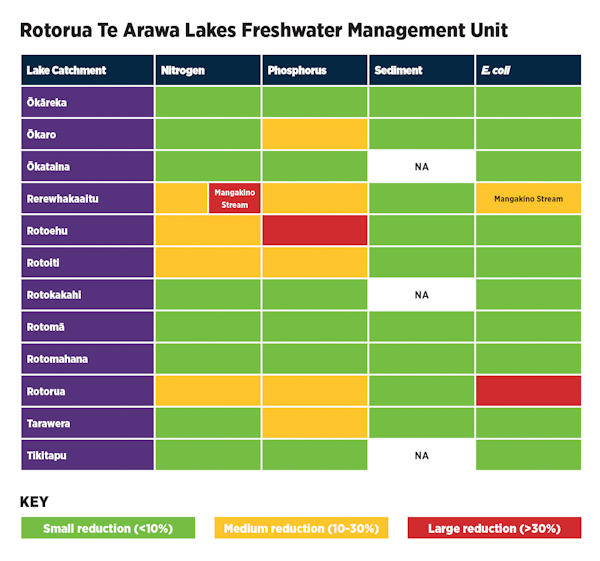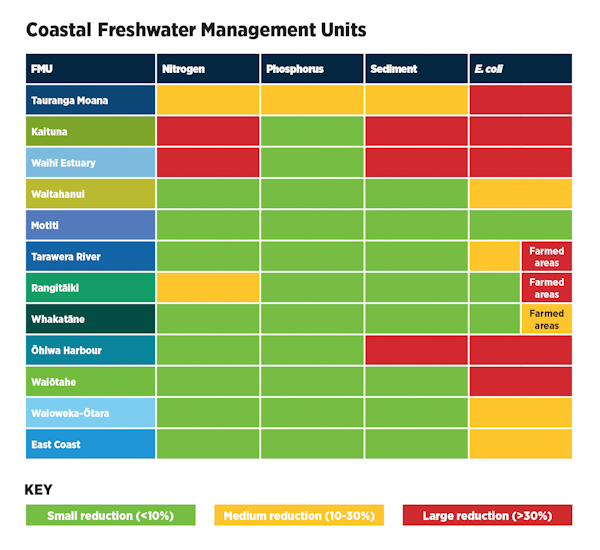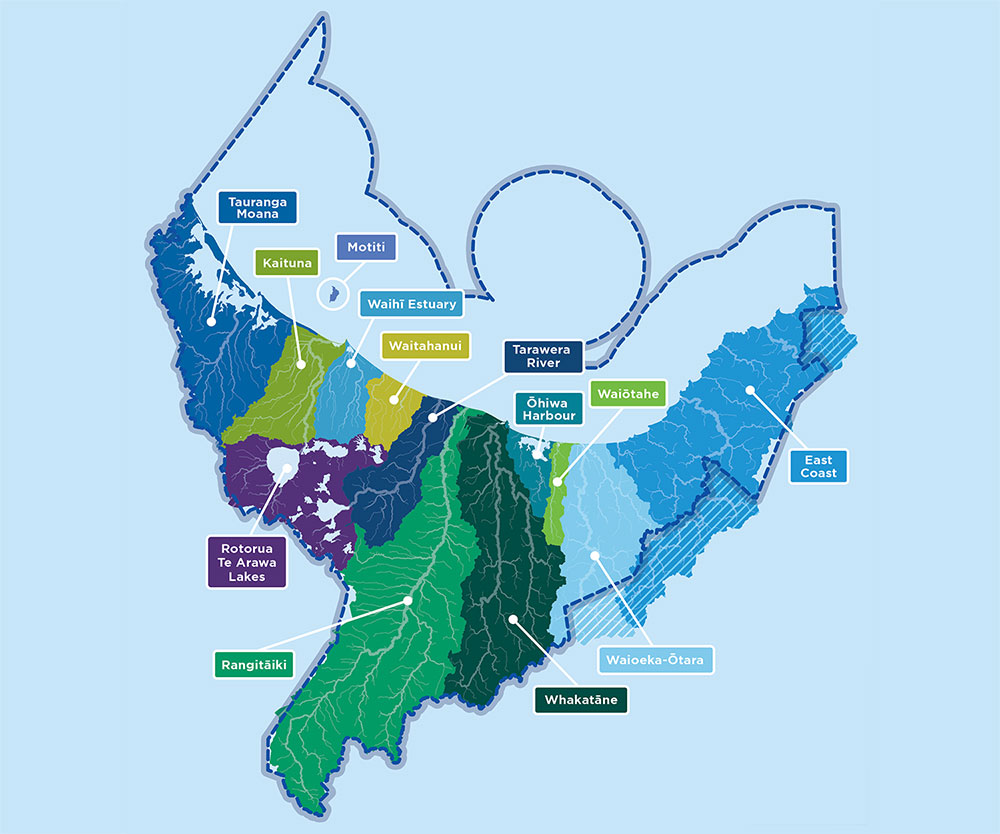The tables below show an indicative scale of the contaminant load reductions needed to meet draft environmental outcomes for water quality and ecosystem health in each Freshwater Management Unit. These are current as at 1 October 2025.




Changing regional policies and rules to manage freshwater better.
Following the Government’s announcement to suspend all plan changes until the new Resource Management Act 1991 replacement legislation and review of the National Policy Statement for Freshwater Management 2020 comes into force, Toi Moana Bay of Plenty Regional Council has paused progress on changes to regional plans to improve how we manage freshwater in our region.
Yet, we still have many issues to address – degraded estuaries, new science and information on how to manage freshwater better, potentially the ability to make more water available for use, the need for a streamlined Regional Plan to make the consenting process easier and approximately 480 pre-RMA water take consents which will be up for renewal in 2026.
We would like to thank the many people in our community, including tangata whenua, community groups, farmers, sector organisations and key stakeholders who have invested time into this process to date. We thank you for your patience and look forward to talking with you again in the future, once the new legislation and national direction are in place.

Water Quality and ecosystem health: how much change is needed?
The tables below show an indicative scale of the contaminant load reductions needed to meet draft environmental outcomes for water quality and ecosystem health in each Freshwater Management Unit. These are current as at 1 October 2025.


Information booklets about the Freshwater Management Units
Please note: The booklets below were produced in 2022 to support public engagement on freshwater rule changes at the time. While these still provide very useful information on each Freshwater Management Unit (FMU) and their key issues, some of the information has since been updated or superseded. This new information includes assessments of surface water and groundwater available for allocation and indicative scale of contaminant reductions needed to meet draft environmental outcomes for water quality and ecosystem health.
Engaging Māori on Essential Freshwater
Engaging Māori on Essential Freshwater is guided by Te Hononga: Regional Māori Engagement Plan For Implementing the NPSFM (2020).
Te Hononga recognises that iwi and hapū across the region have different interests, different levels of readiness, and varying ranges of capacity and capability to participate in planning processes. In response, a flexible approach is adopted, in which various options for involvement are made available, individually or in combination. We maintain an open invite for iwi, hapū and tangata whenua to engage with us on freshwater when they are ready to do so.
For more information, please contact Kerry Brown at kerry.brown@boprc.govt.nz
